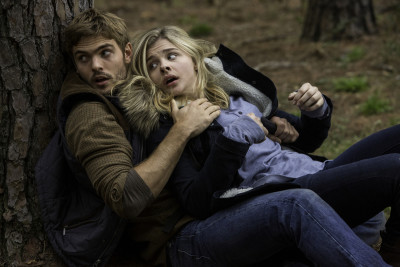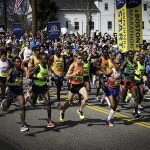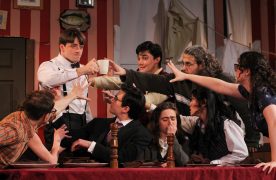
“The 5th Wave” surpassed all expectations, but for all the wrong reasons. As expected, J Blakeson’s science fiction film, based on the novel of the same name by Rick Yancey, was cheesy and clichéd. What wasn’t expected was just how bad the film actually turned out to be.
The story revolves around Cassie Sullivan (Chloë Grace Moretz), a kind and strong-willed girl from Ohio. The Others, a group of mysterious aliens, create four waves of destruction meant to wipe out humans.
After the fourth wave, the U.S. Army takes all the children — including Cassie’s brother, Sam (Zackary Arthur) — to an Air Force base to train them in combat against the Others. Throughout the film, Cassie tries to get to the Air Force base to reunite with her brother. Along the way, she is saved by Evan Walker (Alex Roe). Although handsome and tough, Evan is a potentially untrustworthy savior.
The apocalyptic plot was the best part about “The 5th Wave,” featuring a couple surprising plot twists around the end of the movie. To avoid spoilers, let’s just say an open and unclear ending leaves room for potential sequels.
Cassie is a stereotypical strong female lead who is trying to save the world by doing what she thinks is right. The romance aspect is also typical — one suitor comes from Cassie’s life before the Others, and she meets the next during their attempt at humanity’s destruction.
The most interesting part of the movie might have been the role that the U.S. Army plays. Usually in young adult dystopian novels such as the “Divergent” and “The Hunger Games” series, the teenage characters are trained for combat by third-party organizations. The combination of the U.S. Army’s presence and the Ohio backdrop made “The 5th Wave” feel strangely realistic for this type of movie.
Moretz, a budding Hollywood starlet, gives a disappointing performance. There are an overabundance of scenes that show her running, tripping, getting back up, hiding and breathing heavily, which gets tiresome and redundant.
The hair and makeup is just wrong. At a certain point, it’s questionable how she made it 60 miles by herself in the woods with perfect ringlets and unruffled clothes. At least in “The Hunger Games,” they tried to make it seem like Jennifer Lawrence wasn’t wearing mascara.
Above all else, the writing and acting is the movie’s downfall. In one romantic scene, the audience started laughing because the dialogue was so unrealistic and cheesy — it sounded like it was straight out of a cheap romance novel.
The ever-popular love triangle is handled nicely in this movie, since it doesn’t come into play until the very end. Thinking about the potential for cheesy romantic dialogue in the sequels is cringe-inducing.
The cinematography also seemed amateur. One sequence has Cassie narrating action shots of her running, seeing some of her friends for maybe the last time and witnessing the destruction the Others are causing all over the world. Every scene feels like it ends with a still shot that looks like it came straight from an iMovie project. There seems to be no reason for this strange filming style, and it just makes the film seem unprofessional.
It’s hard not to compare “The 5th Wave” to other young adult dystopian films adapted from books. This movie is simply unable to hold its own in that department. The characters didn’t have any flaws and the romance was predictable and hackneyed.
Kids-turned-fighting-machines are always disturbing, although possibly more disturbing when they’re being trained by the U.S. Army. “The 5th Wave” missed a certain complexity and real-world application that other similar movies do have — it didn’t feel like it was trying to teach me a lesson.
“The 5th Wave” was disappointing, especially in light of the novel’s positive reviews. The best part of the movie was the plot, which it got from the novel. The characters were exaggerated, perfect versions of overused tropes and the writing was almost comedic.














